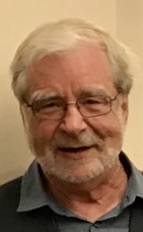A Conceivable Letter to House Representative Mike Johnson
- Marvin T. Brown

- Nov 29, 2023
- 3 min read
Updated: Jan 15

Dear Mr. Johnson,
People like me and people like you don’t often talk with each other, so I thought I would write a letter to propose some topics we might talk about. I also want to share with you that from my perspective your application of Christianity prevents us from moving toward a climate of justice.
I read that you were born in Shreveport, Louisiana. I was born in Fremont Nebraska. Different times and different places. Have you ever wondered who you would be if you were born in India? Would you be a Hindu fundamentalist instead of a Christian fundamentalist? Can you imagine yourself as a child of a Jewish family, or a Black family?
I assume you were born—born of a woman—like the rest of us. I wonder if you tried to raise your children, as we did, as fundamentally good and beautiful, or if you raised them as born in sin, as some evangelicals do. Did you try to break their will, or guide it?
You may believe that it is God’s will that you were born a white child in the South. You do know that you were born in a peculiar social world, don’t you? I have lived in different social worlds. That are all, in their own way, peculiar. We always live in some peculiar context.
You have said that we can open the Bible to know what we should do. Jesus will tell us, so to speak. Remember that Jesus was a Jew. His Jewish followers believed that he was the Messiah for whom they had been waiting. Other Jews disagreed. The point here is simple: When we are listening to Jesus, we are listening to a Jew.
We are also listening to someone who lived under Roman occupation. I think Jesus fought against the occupation, but others disagree. In any case, we are not occupied by a foreign power. We have the privilege of living, for the most part, in a democracy. Our context, in other words, is very different than the context of the Bible. (Jesus never worried about the demise of democracy.)
The denial of contextual differences may be one reason that some evangelical Christians perpetuate the tradition of the “lost cause’ that sees the Federal government as an occupier of Southern states. The strong emotions behind this tradition reside in resentment, hate, and fear. The fear is the fear that propels white supremacy, and we now find it throughout our nation.
When I studied theology in graduate school, I found Paul Ricoeur’s interpretative guidelines very useful for reading classical texts, like the Bible. He saw three stages: the first was a naive reading, where one believed what the text said; the second a critical stage, where one studied the text’s history, its context, and its purpose; and then a third stage of re-engagement with the text to discover its meaning for today. I may be wrong, but you seem to be stuck in the first stage.
People have different beliefs, but they are also persons. The danger with “true believers” is that they refuse to see any distance between their beliefs and themselves. They lose the capacity to appreciate the humanity of others because they have erased their own humanity.
In the civic sphere, there are no gods, only persons. Martin Luther King Jr. knew this, which is why he led a Civil Rights movement instead of a Christian movement. Creating a climate of justice needs religious and non-religious communities to speak for justice—to inspire the civic realm—but not to dominate it.

Comments